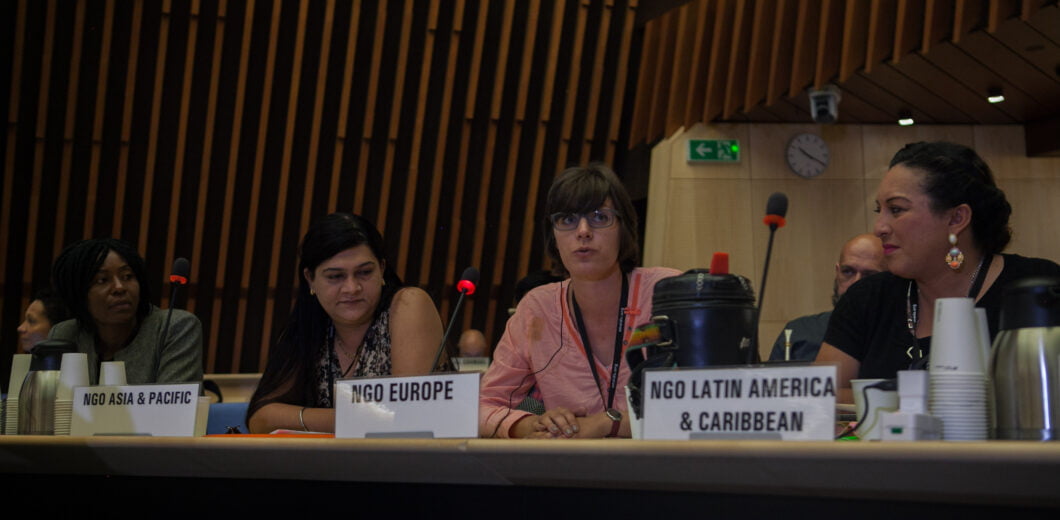Introduction
Angeline Chiwetani, African Delegate
The UNAIDS PCB held its 38th meeting last June 28-30, 2016.
UNAIDS Executive Director Michel Sidibe’s report highlighted the recent milestones in the Joint Programme, including the recently concluded UN High Level Meeting (HLM), as well as the challenges relating to the financial crisis affecting UNAIDS Secretariat and the Joint Programme. Our post-HLM reflections reflect the diverse and mixed reactions of civil society, on what was achieved and not. The exclusion of some key population organizations from participating at the HLM was deemed unacceptable by the NGO Delegation.
Contentious issues at the PCB included the NGO Report on Sexual and Reproductive Health and Rights of Key Populations in the context of Development Rights and the revised Unified Budget Review Accountability Framework (UBRAF). The NGO report, which was postponed from the 37th PCB meeting, still encountered severe resistance from some Member States, prompting us to reframe our decision points. Indeeed, if the language issue around SRHR puts people more at risk than the actual HIV burden, there is need to refocus our engagement to reach the goal of ending AIDS. The NGO Delegation affirmed the call to fully fund the UBRAF so that the Fast Track Strategy gets meaningfully implemented.
Leaving out community will not make any impact in this fight against HIV globally
This PCB’s Thematic Segment brought reality closer to home, as we focused on the role of communities in ending AIDS by 2030. Good examples of community engagement in the HIV response were showcased. The NGO Delegation endeavored to have strong and diverse representation of community and civil society speakers from various regions. Apart from constricting spaces for civil society to engage, one other big challenge that was noted in the Thematic was that most of these organisations are operating on a shoe-string budget, which makes it very difficult to see ending AIDS being a reality.
